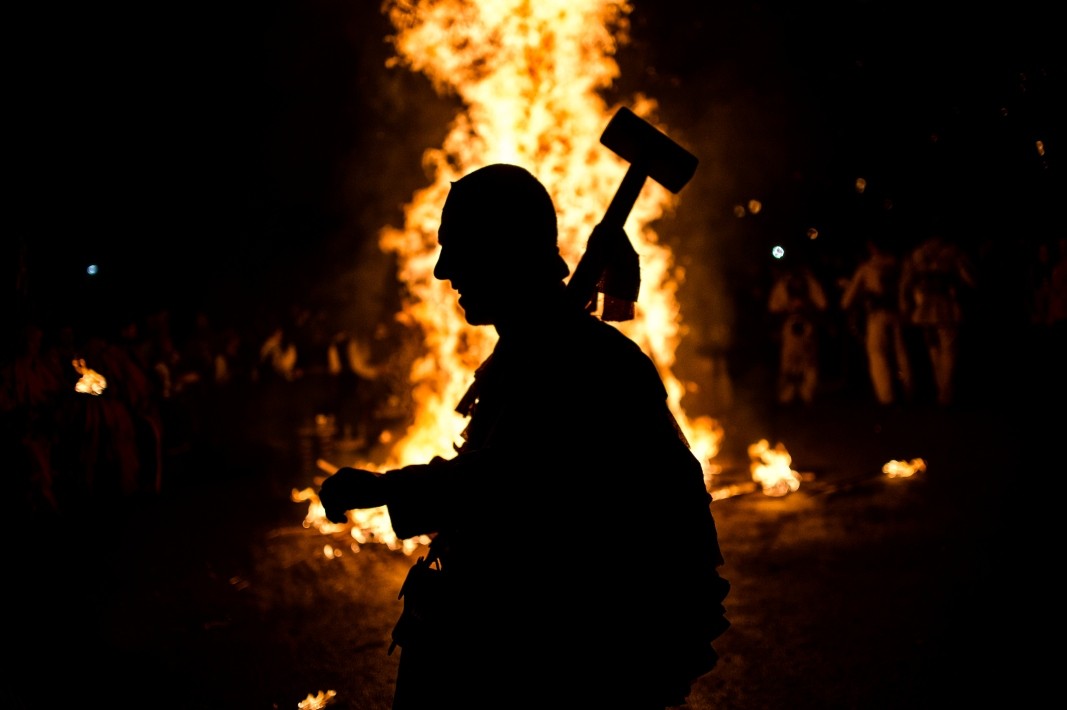Traditionally, the residents of villages in the region of Bulgaria’s Pernik will light the ritual fires also this year to celebrate the Surva holiday. The custom, which is part of UNESCO’s World Heritage Site, dictates that locals disguise themselves on the night of January 13th when St. Basil's Day is celebrated in the old-style calendar. Due to the coronavirus epidemic, however, the international festival of masquerade games of the same name will not take place in Pernik this year.

This year's Surva ritual will be different - not only overshadowed by the persistent virus, but also by the water element that flooded many settlements in the region. That's why the survakari will come out with their scary masks to try to drive away the coronavirus and all evil forces with a fiery dance. In their sayings, they will ask for health during the new year. The Survakari groups will parade along predetermined routes and will knock on the doors of several houses, but without entering them. Also, merging of the groups of survakari from different villages is not allowed this year.

The safety prescriptions prepared by the Regional Health Inspectorate have been handed over to the mayors. One hundred and fifty stewards in reflective vests will monitor the public's compliance with anti-epidemic rules. A thousand protective masks will also be distributed to the participants in the custom.
"Surva" is the biggest winter holiday in the vicinity of the town of Pernik (Western Bulgaria). On the night of St. Basil's Day, the bad forces are chased away and the doors open to the arrival of goodness. It is believed that the scarier the masks, the stronger their magical power.

Photos: archive of EPA/BGNES
The heart and rhythm of the Bulgarian spirit – with these words we can metaphorically define the National Festival of Bulgarian Folklore. Traditionally, since the distant 1965, the event has been organized once every five years on the first weekend of..
The number of Bulgarian folk dance ensembles abroad is growing and, alongside Bulgarian schools, they are among the key centres that unite compatriots overseas and preserve their connection to their roots. Recently, some of these dance troupes returned..
A Bulgarian amateur folk choir based in Italy has returned to Bulgaria for its debut performance before a home audience. Most members of the choir, named Beli Rozi (White Roses) , have lived in the southern Italian city of Pescara for over a decade...
The number of Bulgarian folk dance ensembles abroad is growing and, alongside Bulgarian schools, they are among the key centres that unite compatriots..
The heart and rhythm of the Bulgarian spirit – with these words we can metaphorically define the National Festival of Bulgarian Folklore. Traditionally,..

+359 2 9336 661
